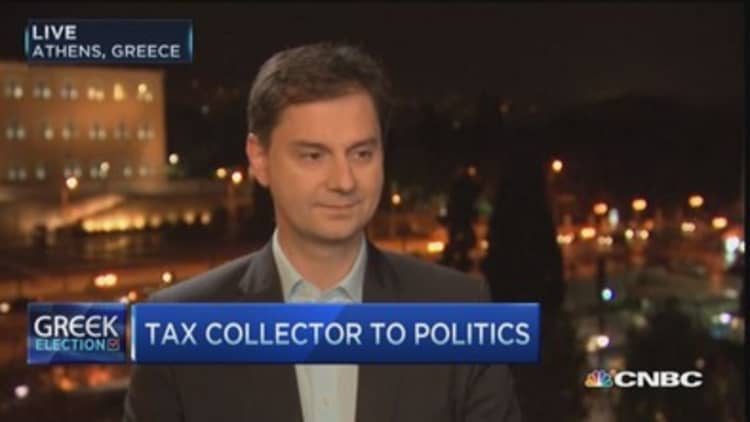


Greek elections have the potential to rattle markets at the start of the trading week, but the European Central Bank's plan to embark on a bond-buying binge takes some of the sting out of a likely win by an anti-austerity party in Athens.
On Monday, "most of the fixation will be on Sunday's Greek election. Right now the odds-on favorite are on the Syriza party to win control of the government, after the anti-European Union rhetoric part of their campaign," Mark Luschini, chief investment strategist at Janney Montgomery Scott.
If the results of the latest polls pan out, Alexis Tsipras and his opposition Syriza party look to be headed to victory, with Sunday's voting to take place three days after the ECB unveiled its plan to purchase 60 billion euros a month in bonds through September 2016 in an effort to fend off deflation in the region.
"The ECB's news limits some of the fallout if Syriza wins convincingly and gets a majority in parliament. But what does it mean for elections in Italy and Spain coming up, that'll matter Monday morning," Peter Boockvar, chief market analyst at the Lindsey Group, said.
Bailed out by the European Union, the ECB and the International Monetary Fund, Greece has since followed mandates imposed by that so-called troika.
Tsipras, however, has vowed to renegotiate the rescue agreement that has involved painful cuts in public spending and tax increases.
Greece wants to "stay in the euro, but repudiate their debt. That emboldens other counties to say, 'why can't you do the same thing for us'," Boockvar said.
While a Syriza win, particularly if it claims an overall majority, would shake Europe and potentially investors around the globe, it would not revive the 2012 worries of a Greek default and possible contagion spreading to other economies in the euro zone.
"The positions from the various parties are less disparate than a month ago. There is support to negotiate for a better deal but fewer calls for Greece to leave the euro zone. It could have some impact on Monday's trading, but less than we all thought," Kate Warne, investment strategist at Edward Jones, said.


